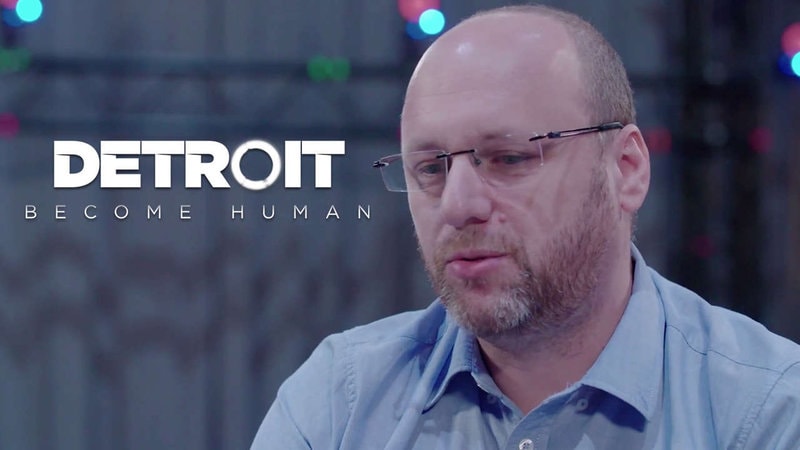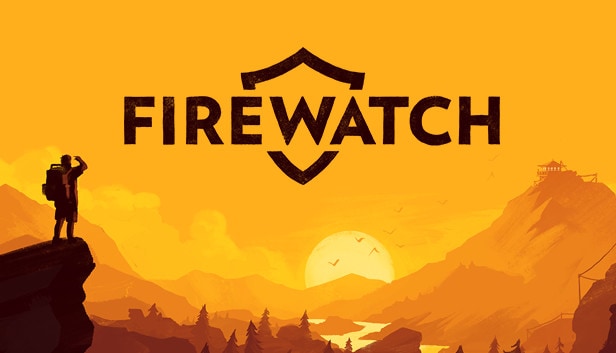Why David Cage Sucks

Do you find yourself constantly disappointed by the hype surrounding David Cage’s narrative-driven games? Are you tired of the lack of player agency and the illusion of interactivity in his titles? If so, you’re not alone.
David Cage, the founder of Quantic Dream and the mind behind games such as Heavy Rain and Detroit: Become Human, has long been praised for his cinematic storytelling and innovative use of technology. However, upon closer inspection, it becomes clear that his games are riddled with flaws that ultimately make them unsatisfying experiences for many players.
From poor writing and character development to over-the-top melodrama, there are many reasons why David Cage sucks as a game developer.
Key Takeaways
- David Cage’s games suffer from a lack of player agency and predetermined outcomes, with limited branching paths and binary choices that lack nuance.
- The illusion of interactivity undermines storytelling, with many “interactive”moments being scripted events and quick-time events feeling cheap.
- Poor writing and underdeveloped characters rely heavily on harmful tropes, and the over-the-top melodrama feels forced and unrealistic.
- While the graphics are fantastic, the overall experience of David Cage’s games is lackluster, with heavy-handed themes and predictable plot twists that can be manipulative, and failed execution that prevents engagement. Alternatives such as “Life is Strange”and “Firewatch”offer gripping storylines, well-developed characters, immersive gameplay, and breathtaking graphics.
Why People Think David Cage Sucks
Opinions about David Cage can vary widely among gamers and critics. Some people may have negative views of David Cage for several reasons:
- Writing and storytelling:
One common criticism is about the quality of his writing and storytelling. Some players find his narratives to be melodramatic, pretentious, or lacking in depth and coherence. - Dialogue and character development:
Players find the dialogue in his games to be awkward and unnatural, which can impact the overall character development and immersion. - Gameplay and interactivity:
Some criticize Cage’s games for being more focused on the narrative and less on traditional gameplay mechanics, which may not resonate with all players. - Controversial themes and handling:
Some of his games tackle sensitive and controversial themes, and some players believe that Cage’s approach to addressing these topics can be superficial or problematic. - Repetitive elements:
Critics point out that certain gameplay elements or themes tend to recur in his games, leading to a feeling of repetitiveness. - Pacing and structure:
Some players find the pacing of his games to be slow or inconsistent, affecting the overall enjoyment and engagement.
The Problem with Lack of Player Agency
If you’re looking for a game that truly allows you to make meaningful choices and shape your own story, you might want to steer clear of anything made by David Cage – his lack of player agency is a major problem.
In games like Heavy Rain and Detroit: Become Human, players are presented with what seems like a multitude of choices and branching paths, but in reality, the outcomes are often predetermined and the choices are merely illusions. This lack of agency is frustrating for players who want to feel like they have control over the story and their character’s actions.
It’s especially disappointing because the games themselves are often marketed as being all about player choice and consequence. Instead, players end up feeling like they’re just along for the ride, with little actual impact on the narrative. Ultimately, this lack of agency undermines the entire point of interactive storytelling and makes for a less satisfying experience overall.
The Illusion of Interactivity in David Cage’s Games
You might feel cheated by the illusion of interactivity in David Cage’s games, as they often give you the false impression of choice and consequence. Here are some reasons why:
- Limited branching paths: Despite the multiple choices you’re given, the game usually funnels you towards the same outcome, with only minor variations in the plot. This reduces the impact of your decisions and makes them feel inconsequential.
- Binary choices: Most of the choices you make in David Cage’s games are simply either/or decisions, with no room for nuance or ambiguity. This makes the game world feel black and white, and your choices feel superficial and predictable.
- Scripted events: Many of the ‘interactive’ moments in the game are actually scripted events that happen regardless of your choices. This breaks immersion and makes it clear that your agency is limited.
- Quick-time events: These button-mashing sequences that pop up in the middle of cutscenes are often used as a substitute for real interactivity. They feel like a cheap way of making you feel involved in the action, without actually giving you any control.
- Illusion of consequence: Despite the claims of the game being affected by your choices, the overall plot rarely deviates from its predetermined path. This makes the game feel like a linear story with occasional detours, rather than a true interactive experience.
In short, David Cage’s games often rely on the illusion of interactivity to create the impression of player agency, without actually delivering on that promise. While there are some genuine moments of choice and consequence, they’re overshadowed by the game’s limitations and scripted events. This can leave players feeling unsatisfied and disappointed, especially if they were expecting a truly interactive experience.
The Role of Storytelling in Video Games
Let’s explore how storytelling can enhance the overall experience of playing video games. A well-crafted story can immerse you in a game’s world, making you care about the characters and their struggles. It can create emotional connections that keep you invested from beginning to end. When done right, a good story can make an otherwise average game into a memorable experience.
However, David Cage’s approach to storytelling often falls flat. His reliance on heavy-handed themes and predictable plot twists can feel forced and manipulative. Instead of creating complex characters, he often relies on stereotypes and clichés. This lack of nuance and subtlety can make it difficult to care about the game’s story, ultimately leading to a lackluster experience.
FAQ
Who is David Cage?
David Cage is a video game designer, writer, and director. He is the founder of Quantic Dream, a video game development studio known for narrative-driven games such as “Heavy Rain,” “Beyond: Two Souls,” and “Detroit: Become Human.”
What is Quantic Dream?
Quantic Dream is a French video game development studio founded by David Cage in 1997. The studio is renowned for its cinematic and emotionally engaging games that emphasize interactive storytelling and decision-making.
What are some notable games developed by David Cage and Quantic Dream?
David Cage and Quantic Dream are known for creating innovative narrative-driven games. Some of their notable titles include “Heavy Rain,” a psychological thriller, “Beyond: Two Souls,” a supernatural adventure, and “Detroit: Become Human,” a futuristic interactive drama.
What sets David Cage’s games apart?
David Cage’s games stand out for their focus on emotional storytelling, player choices that impact the narrative, and cinematic presentation. The games often explore complex themes and moral dilemmas, offering players a unique and immersive experience.
Have David Cage’s games received critical acclaim?
Yes, David Cage’s games have received both critical acclaim and mixed reviews. While praised for their ambition and storytelling, some critics have raised concerns about the writing, pacing, and interactivity in his games.
What are some controversial aspects of David Cage’s work?
David Cage’s games often tackle controversial and sensitive themes, such as domestic abuse, mental health, and human-like androids. Some players and critics have debated the handling of these topics and whether they are portrayed with sufficient depth and sensitivity.
Is David Cage involved in other creative endeavors?
While best known for his work in the video game industry, David Cage has also been involved in writing and directing short films and has expressed interest in exploring other storytelling mediums.
Has David Cage won any awards for his contributions to the gaming industry?
Yes, David Cage and Quantic Dream have received numerous awards and nominations for their games. Some of the awards include accolades for best narrative, game design, and innovation.
The Importance of Player Choice and Agency
The key to creating an immersive and engaging gameplay experience lies in the player’s ability to make choices and have agency over the game’s narrative direction. When players have the power to make decisions that affect the outcome of the game, they become invested in the story and feel a sense of ownership over their gameplay experience. This level of agency can lead to multiple playthroughs as players experiment with different choices and see how they impact the story.
Player choice also adds replay value to a game. When a game has a linear narrative with no player agency, there’s little reason to replay it once the story has been experienced. However, when players have the ability to make decisions that affect the game’s outcome, they’re more likely to play through the game multiple times to see how their choices impact the story. This creates a sense of discovery and exploration that can keep players engaged long after the initial playthrough.
In short, player choice and agency are crucial to creating a memorable and satisfying gameplay experience.
The Issues with Poor Writing and Character Development
Poor writing and underdeveloped characters can leave players feeling disconnected from the game’s world and storyline, making it difficult to fully immerse themselves in the experience. David Cage is often criticized for his writing, with many players finding the dialogue and character interactions to be clunky and unrealistic.
This can be especially frustrating in a medium where player choice is heavily emphasized, as the choices presented may not feel meaningful or satisfying if the characters and their motivations are not properly fleshed out.
Additionally, Cage has been accused of relying too heavily on tired and harmful tropes in his character development. The female characters in his games are often relegated to stereotypical roles, such as the nurturing mother or the seductive femme fatale.
This not only perpetuates harmful gender stereotypes but also fails to create fully-realized and interesting characters. Overall, the poor writing and character development in David Cage’s games can greatly detract from the player’s experience and prevent them from fully engaging with the story and world presented.
The Impact of Over-the-Top Melodrama on Gameplay
Now that you understand the issues with poor writing and character development in David Cage’s games, it’s time to delve into another problem that plagues his work – over-the-top melodrama. This is a common theme in Cage’s games, as he often attempts to create intense emotional moments through exaggerated dialogue and actions. However, this often results in gameplay that feels forced and unrealistic, detracting from the overall experience.
To give you a better idea of how over-the-top melodrama impacts gameplay in David Cage’s games, here are a few examples to consider:
- Characters often make dramatic speeches or declarations that feel out of place in the context of the scene.
- Emotional moments are often drawn out to the point of becoming tedious and boring.
- The use of slow-motion and dramatic music can take away from the immersion of the game.
- The writing often relies on cliches and stereotypes, further detracting from the impact of emotional moments.
Overall, the impact of over-the-top melodrama on gameplay in David Cage’s games is significant. While he may be attempting to create emotional connections with his audience, the forced nature of these moments often results in gameplay that feels tedious and inauthentic. If you’re looking for a game that delivers a meaningful emotional experience without sacrificing gameplay, it may be best to look elsewhere.
The Disappointment of Unrealized Potential
You may have felt let down by the unrealized potential in some of the games created by this developer. David Cage is often known for his ambitious ideas, but unfortunately, his execution falls short of those expectations. Many of his games have intriguing concepts, but they ultimately fail to deliver on their promises.
One example of this is the game “Detroit: Become Human.”The game’s premise is fascinating, as it explores the idea of artificial intelligence and the struggles that come with it. However, the execution of the game is lackluster, with a predictable story and shallow characters. The game’s potential for branching storylines and player choice is also limited, leading to a disappointing overall experience. This is just one example of the many games by David Cage that have failed to live up to their potential.
| Pros | Cons |
|---|---|
| Interesting concepts | Poor execution |
| Ambitious ideas | Shallow characters |
| Unique gameplay mechanics | Predictable story |
| Fantastic graphics | Limited player choice |
| Great sound design | Lackluster overall experience |
Alternatives to David Cage’s Narrative-Driven Games
If you’re looking for captivating narrative-driven games that deliver on their promises, there are plenty of alternatives out there to explore.
One such game is ‘Life is Strange’ by Dontnod Entertainment. This game is a perfect example of how to execute a narrative-driven game successfully. The storyline is gripping, and the choices you make determine the outcome of the game. The characters are well developed, and you genuinely care about them. The game’s soundtrack is also fantastic, and it adds to the overall emotional impact of the game.
Another game worth checking out is ‘Firewatch’ by Campo Santo. The game’s story revolves around a fire lookout named Henry, who is stationed in the Wyoming wilderness. The game is an immersive experience that puts you in Henry’s shoes, and you get to experience his thoughts and emotions. The game’s graphics are breathtaking, and the voice acting is top-notch. The game’s storyline is captivating, and it keeps you engaged from start to finish.
Both ‘Life is Strange’ and ‘Firewatch’ are great alternatives to David Cage’s games, and they deliver on their promises.
Final Thoughts
So, there you have it. You now know why David Cage sucks. His games lack player agency, rely on the illusion of interactivity, and prioritize storytelling over player choice and agency.
Additionally, his writing and character development are subpar, and his over-the-top melodrama can have a negative impact on gameplay.
Despite the disappointment of unrealized potential, there are alternatives to David Cage’s narrative-driven games. Games that prioritize player choice and agency, offer meaningful consequences for decisions, and prioritize gameplay over storytelling.
So, if you’re looking for a more satisfying gaming experience, it may be time to look beyond David Cage’s offerings.









